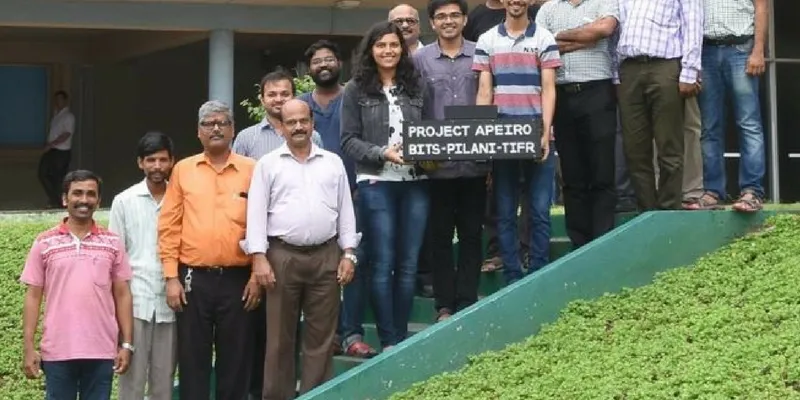In a first, micro satellite developed by college students launched
The first student-led micro satellite of India was recently launched in Hyderabad’s Tata Institute of Fundamental Research (TIFR) balloon facility. With this micro satellite, the goal is to understand and analyse the cosmic radiations that cause cancer disease.

This balloon facility, where the micro satellite was launched, is located near the Electronics Corporation of India Limited (ECIL). This venture is being called the Project Apeiro, and has been led by the undergraduate students of BITS Pilani K.K. Birla Goa Campus- Lucky Kapoor, Sanket Deshpande, Vibhav Joshi, Shivangi Kamat, and Pankaj Tiple. The students were mentored and guided by the Scientific Officer of TIFR Mumbai, B Satyanarayana.
The students received support and guidance for the project from the chairperson of Hyderabad’s TIFR Balloon Facility Devendra Ojha, scientist-in-charge at the TIFR Balloon Facility Suneel Kumar, and Srihari Menon from University of Pennsylvania.
With an aim to detect the cosmic radiations present in the stratosphere, High Altitude Ballooning technique was used to carry out the experiment. In this technique, one can conduct studies in the near-space environment using a zero-pressure plastic balloon. The experimental payload, consisting of a cosmic radiation detector, can be lifted to a desired altitude with the help of this balloon.
According to The Hindu, the TIFR Balloon Facility in Hyderabad is one of the few facilities in India capable of conducting such a flight.
This experiment is being cited as important because it is important to understand the cosmic radiations bombarding the earth that are biologically harmful. Among the biologically harmful effects of these radiations are tissue damage and cancer.
The end goal of the experiment is to create preventive measures after understanding and analysing these radiations. According to Times of India, an official statement said,
This flight sets history by successfully completing the country's first near-space experiment completely developed by students.
Do you have an interesting story to share? Please write to us at [email protected]. To stay updated with more positive news, please connect with us on Facebook and Twitter.







